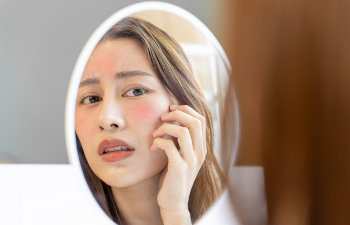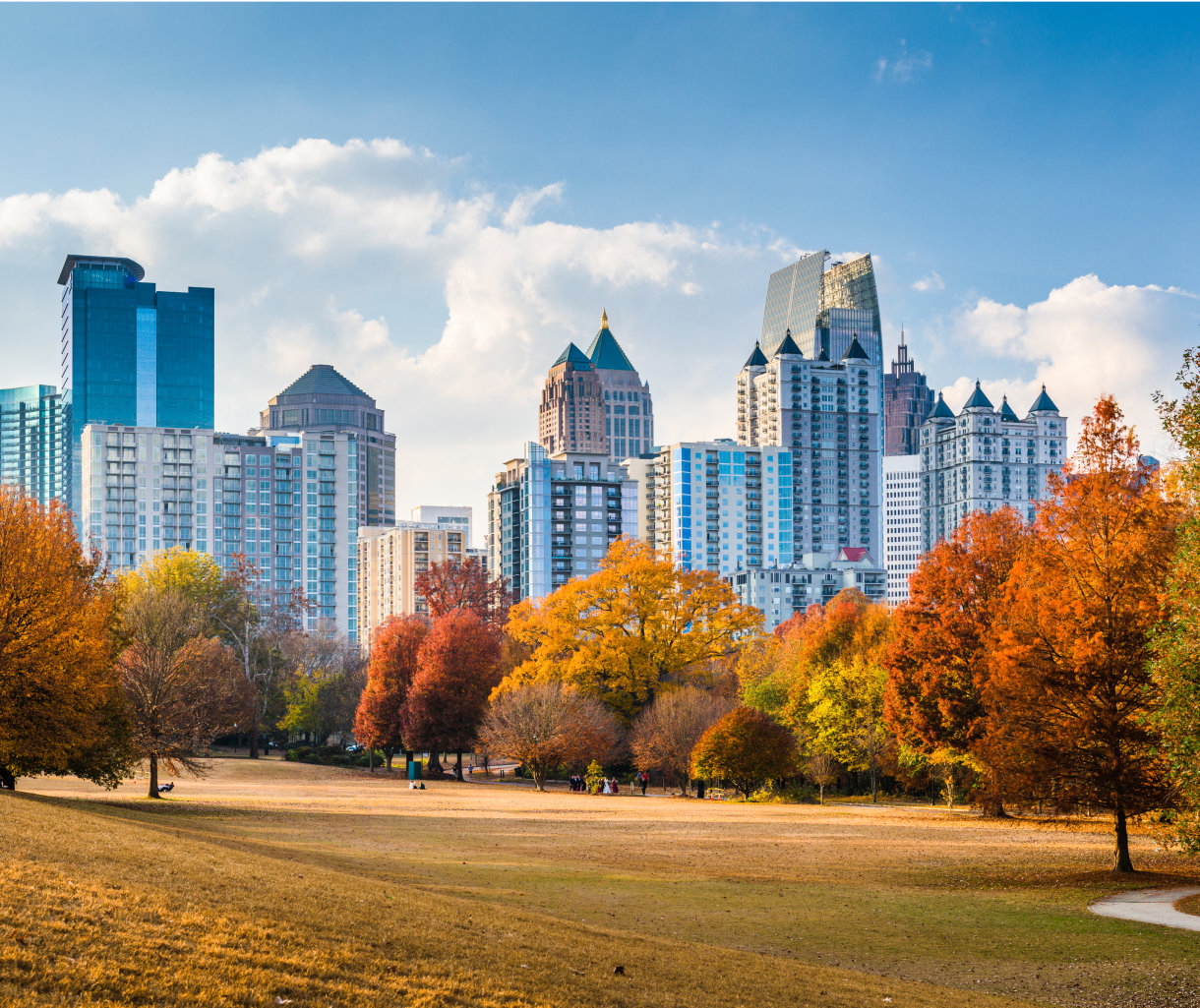
You may have the inflammatory skin condition rosacea if your face looks flushed and you get bumps that resemble acne.
What Triggers Rosacea Flare-Ups?
People with rosacea have particularly sensitive skin. As a result, a variety of factors can trigger flare-ups. Although rosacea can affect anybody, it is more common among fair-skinned women over 30, especially if the person has a family history of the condition. Rosacea symptoms are brought on by increased blood flow to the skin’s surface. Several factors could cause this increase in blood flow, including:
- Emotional stress
- Strenuous exercise
- Alcohol, caffeine or hot beverages
- Extreme temperatures
- Sun or wind
- Medications that widen your blood vessels
- Cosmetics
- Spicy food
What Are the Symptoms of Rosacea?
This chronic skin condition generally manifests as spots of facial redness at the center of the face before extending to the forehead and chin. Rosacea can also affect the back, chest or ears.
Typical symptoms of rosacea include:
- Red, swollen lumps that resemble pimples
- Enlarged and noticeable blood vessels on the cheeks and nose
- A nose with a bulbous appearance due to thickened skin
- Eye issues such as irritation, swelling and dryness
Rosacea Treatments Options
Your rosacea treatment may include anti-inflammatory medications such as topical metronidazole, oral isotretinoin and the antibiotic doxycycline, depending on the state of your skin. Rosacea can also be treated with topical prescription medicines like azelaic acid gel, brimonidine, oxymetazoline and ivermectin. However, it may take several weeks or months for your skin to improve after using one of these medications.
Rosacea can also be treated using the following methods:
- Laser surgery
- Electrosurgery
- Dermabrasion
Tips To Help Prevent Rosacea Flare-Ups
Identifying and avoiding your triggers is the most effective strategy to prevent rosacea flare-ups. Other rosacea prevention tips include:
Choosing suitable skin care products and cosmetics: Many skin care products and cosmetics are too abrasive for sensitive skin and can exacerbate rosacea symptoms. Instead, use a gentle cleanser and a suitable moisturizer daily. Additionally, you should use sunscreen for sensitive skin and avoid toners, astringents and exfoliants.
Avoid using cosmetics that contain the following ingredients:
- Alcohol
- Lactic acid
- Glycolic acid
- Camphor
- Urea
- Sodium lauryl sulfate
- Various fragrances
Considering Your Medications: Medication used to treat hypertension, glaucoma, heart conditions, anxiety and migraines may trigger flare-ups. If you suspect that a medicine you are taking exacerbates your rosacea symptoms, consult your doctor before making any changes.
We Can Help Manage Your Rosacea Symptoms
Unfortunately, rosacea symptoms can lower one’s self-esteem and cause social awkwardness and frustration, leading to mental problems such as anxiety and despair. The good news is that Medical Dermatology Specialists provides customized and advanced rosacea treatment solutions.
Our rosacea treatment experts can help you manage your symptoms and prevent flare-ups. Contact Medical Dermatology Specialists today to book a consultation in Atlanta or to learn more about rosacea and how to protect your sensitive skin daily.
Posted on behalf of
5730 Glenridge Drive, Suite T-100
Atlanta, GA 30328
Phone: Call (404) 939-9220
FAX: (470) 312-2157
Email: jstalls@atlmedderm.com


